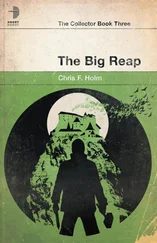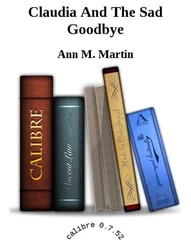Chris Holm - The Wrong Goodbye
Здесь есть возможность читать онлайн «Chris Holm - The Wrong Goodbye» весь текст электронной книги совершенно бесплатно (целиком полную версию без сокращений). В некоторых случаях можно слушать аудио, скачать через торрент в формате fb2 и присутствует краткое содержание. Город: New York, Год выпуска: 2012, ISBN: 2012, Издательство: Angry Robot, Жанр: sf_fantasy_city, на английском языке. Описание произведения, (предисловие) а так же отзывы посетителей доступны на портале библиотеки ЛибКат.
- Название:The Wrong Goodbye
- Автор:
- Издательство:Angry Robot
- Жанр:
- Год:2012
- Город:New York
- ISBN:978-0-85766-221-7
- Рейтинг книги:3 / 5. Голосов: 1
-
Избранное:Добавить в избранное
- Отзывы:
-
Ваша оценка:
- 60
- 1
- 2
- 3
- 4
- 5
The Wrong Goodbye: краткое содержание, описание и аннотация
Предлагаем к чтению аннотацию, описание, краткое содержание или предисловие (зависит от того, что написал сам автор книги «The Wrong Goodbye»). Если вы не нашли необходимую информацию о книге — напишите в комментариях, мы постараемся отыскать её.
Which sounds all well and good, but when the soul Sam’s sent to collect goes missing, Sam finds himself off the straight-and-narrow pretty quick.
The Wrong Goodbye — читать онлайн бесплатно полную книгу (весь текст) целиком
Ниже представлен текст книги, разбитый по страницам. Система сохранения места последней прочитанной страницы, позволяет с удобством читать онлайн бесплатно книгу «The Wrong Goodbye», без необходимости каждый раз заново искать на чём Вы остановились. Поставьте закладку, и сможете в любой момент перейти на страницу, на которой закончили чтение.
Интервал:
Закладка:
Dumas got to his feet, clapped me on the shoulder.
“Come with me,” he said. “There’s something I think you need to see.”
24.
The rain beat down on my face and neck, and made treacherous the stone steps that we descended. These steps were narrower than the ones I’d followed up to the main building, and they hugged the craggy canyon wall, making their path unpredictable and the going slow. The warmth and light of Dumas’s fireplace were but a distant memory, three stories and a world of wet away. Dumas led me downward through the darkness, looking dry as ever, as though the rain didn’t dare to dampen him. It was an illusion, of course; Dumas looked dry for the same reason Dumas looked human —because that’s how he chose to look.
Me, I looked like a drowned rat, my one shoe-clad foot squishing with every step, and my bare sock soaked clean through and caked thick with mud. Figures I’d wind up coming to the desert on the one fucking night it rains. Next time, I’m bringing a slicker and some rubber boots —provided I survive long enough for there to be a next time.
“Where exactly are we going?”
“Servants’ quarters,” Dumas replied.
“Yeah, I can see why you’d want to tuck ’em out of sight,” I said, glancing back toward the main building behind us —its crumbling façade barely visible through the pounding rain. “You’d hate to ruin the lovely ambience you’ve got going on back there.”
“What, you didn’t like the rug? I thought it really tied the room together.”
At the base of the slope up to the main building, Dumas jagged right, disappearing from view. I’d been figuring on a left-hand turn toward the constellation of outbuildings I’d seen on my way in. Visibility being what it was, I had no idea where Dumas had gotten off to, so for a moment, I just stood there like an idiot in the rain.
“Hey, Sammy —you comin’ or what?”
Turned out Dumas was standing in a natural alcove in the rock maybe eight feet high, and barely wide enough for two men to stand side-by-side. At first, the alcove didn’t seem to be that deep, and then I realized that what I’d taken to be the inside wall was in fact a heavy iron door, so thoroughly corroded by the elements that it looked as natural as the rock walls that surrounded it.
At the center of the door was a wheel —a wheel as rust-caked as the door itself. It would’ve taken a dozen Strong Man competitors and a can of WD-40 to move that thing an inch. Dumas spun it like a pinwheel in a stiff wind. And with a shriek like the cries of the tormented, the door swung inward.
Stepping inside, it was apparent this wasn’t so much an alcove as a cave. A well-trodden dirt floor led inward from where we stood, pocked here and there with strange stone outcroppings the color of sun-bleached bone. Torches hung on the walls at regular intervals, casting long shadows of the rock formations, and causing the corridor before me to writhe like a living thing as their flames licked at the stone ceiling above. The air was thick with oily smoke; it burned in my throat and made my eyes water. But beneath its tarry bite was another scent, sour and unpleasant: a sulfurous reek that seemed to emanate from the very walls.
“Abandon hope, all ye who enter here,” I muttered.
“I know, right?” Dumas replied, his eyes dancing with mirth in the torchlight. “I was thinking of having a doormat made special.”
We proceeded down the natural corridor. Rooms branched off from it on either side —some sealed with iron doors of their own, some nothing more than bare rock arches leading into darkness. It was warm inside —too warm. Between the fumes, the heat, and the ever-shifting firelight, I felt dizzy, ill, disoriented. But if Dumas noticed, he paid no mind, instead leading me down, down, down toward God knows what.
No, I thought. About this, God has no idea.
Over time I became aware of a peculiar sound, low and rumbling like machinery. It built and built upon itself until it was damn near unbearable, a horrid oscillating pressure in my eardrums that made my eyes blur and my temples throb like the early stages of a migraine. I tried to hide my discomfort from Dumas. It worked about as well as any of my plans thus far.
“You hear that, Sammy? That’s the sound of commerce . Of product being made. I tell ya, it’s music to my ears…”
“Yeah,” I said, trying to smile, and winding up with more of a pained grimace. “Catchy.”
He nodded toward a door up ahead, another iron job that, if anything, was heavier and better reinforced than the one through which we’d entered. “You wanna see?”
I didn’t. I told him so. He showed me anyway.
I really shoulda seen that coming.
When he heaved open the door, the sound doubled in intensity. The pressure in my eardrums seemed to spread. My intestines fluttered like I’d eaten a bad burrito, and the fillings in my meat-suit’s teeth began to ache. It was all I could manage to keep my feet. Dumas was mock-oblivious, clapping one arm over my shoulder and ushering me through the doorway, his features ablaze with malignant delight.
The room was small and dark, and the air inside was thick with sulfurous steam; it billowed outward through the open door like hot breath on my face. No torches graced the close stone walls. Aside from the firelight that spilled in through the open door, the only illumination came from somewhere in the center of the room, a ghostly gray light that appeared at first to emanate from the very steam itself. But as the steam dispersed, I caught a glimpse of the machinery behind the awful racket —and the true source of the room’s sole light.
It appeared to be some kind of massive lathe, sitting at table height and fastened to the floor with bolts as thick as my arm. A hodge-podge of tarnished brass fixtures —wheels, knobs, cranks, and levers —jutted from its cast-iron shell, and several grime-caked gears transmitted power to the spindle from a thick rubber belt that extended upward to a diesel engine above, running at full bore and fixed to the ceiling by a series of heavy chains. Angling downward from the ceiling, as well as upward from the floor below, were several copper pipes, which snaked their way around the room from a cistern in the corner and converged on the object mounted on the rapidly turning spindle.
The object itself was scarcely larger than an acorn, and obscured from view by the steam that billowed off of it —steam generated by the water jetting toward it from the copper pipes. But as it turned, it flickered with familiar light, and beneath the clamor of machinery, I could just make out the melancholy wail of its song.
It was a soul. A human soul, reduced to a mere commodity by Dumas and his ilk.
The machine’s attendant —a hulking mass of demon-flesh clad head-to-cloven-hoof in thick, coarse leather —threw a lever, and the engine chugged to a halt. The spindle slowed and stopped, and, with a squeak of turning valves, the flow of water petered out as well. My head was grateful for the silence. My heart ached to see a soul treated so callously as this.
The machinist shook free of his gloves and stripped off his mask —a grotesque parody of the face beneath rendered in leather and brass, with a lens of ambercolored glass where the demon’s sole eye proved to be. Don’t get me wrong, the demon beneath was hardly a looker —picture a rabid, mangy, cyclopean Rottweiler, and you’re more or less there —but that mask? That mask was the stuff of nightmares.
“Nice getup,” I said.
The dog-beast eyed me with the sort of disdain you’d expect from a blue-blood stepping over a puking wino. “Boss,” it said with a voice a good octave lower than any human one I’ve ever heard. “There some kind of problem?” The words seemed unwieldy in the creature’s mouth, as if it were unaccustomed to speaking in a human tongue, and though it was speaking to Dumas, its eye never left me. The eye itself was black and glistening and rimmed all around with red. Its corners were crusted with dried mucus, sickly white against the creature’s pitch-black face. I could see my reflection in the surface of that eye, smaller and more frightened than I maybe would have liked.
Читать дальшеИнтервал:
Закладка:
Похожие книги на «The Wrong Goodbye»
Представляем Вашему вниманию похожие книги на «The Wrong Goodbye» списком для выбора. Мы отобрали схожую по названию и смыслу литературу в надежде предоставить читателям больше вариантов отыскать новые, интересные, ещё непрочитанные произведения.
Обсуждение, отзывы о книге «The Wrong Goodbye» и просто собственные мнения читателей. Оставьте ваши комментарии, напишите, что Вы думаете о произведении, его смысле или главных героях. Укажите что конкретно понравилось, а что нет, и почему Вы так считаете.












